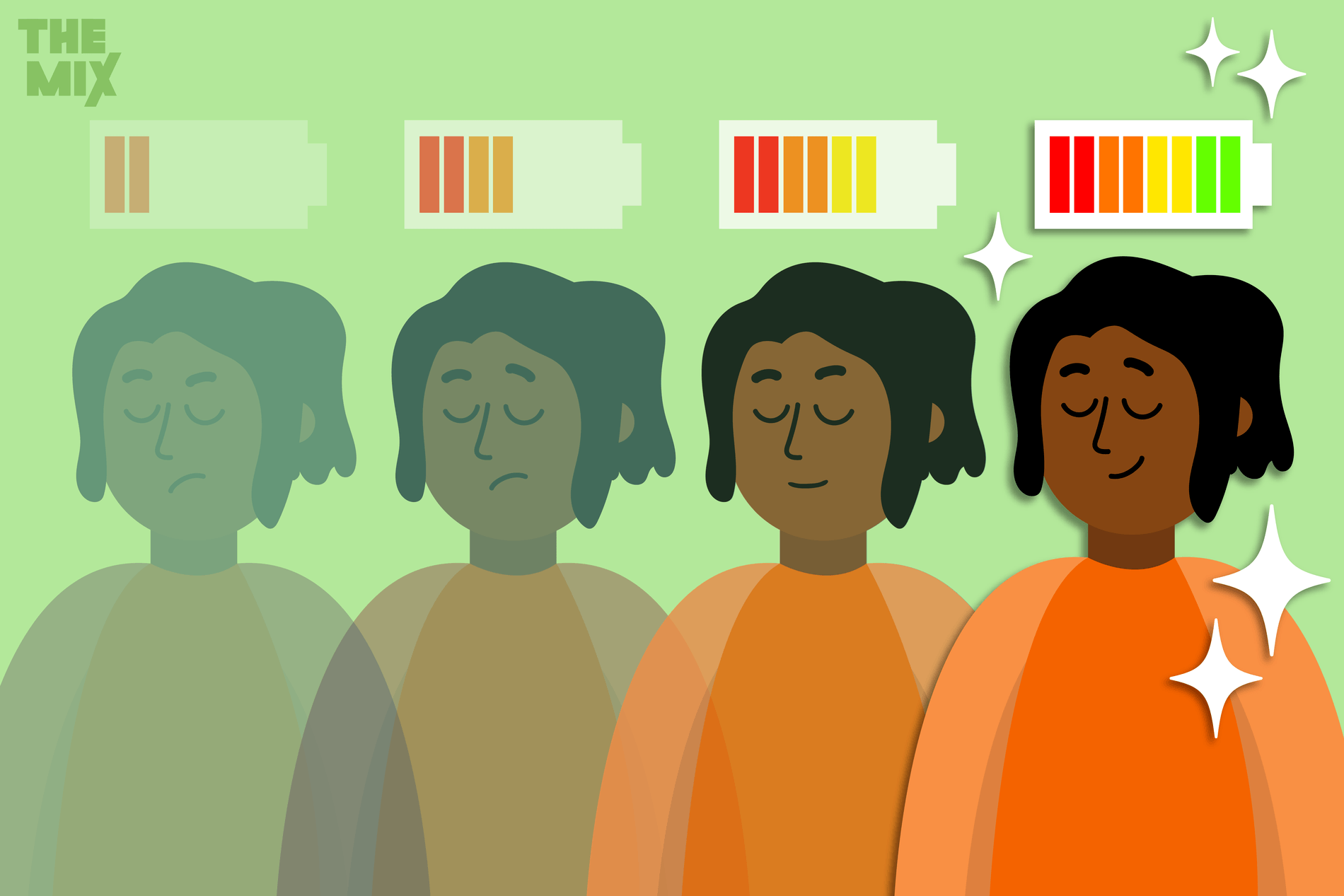Sick Notes: It’s OK to take time off
Dear humans, if you’re reading this then there’s a good chance that you’re going to have to take time off work or studying due to sickness. It’s just part of the whole life experience (Woo!). So what do you do about work when you can barely lift a glass of water? And how do you know if you’re actually sick enough to take time off? The Mix digs into the glamourous world of sick notes…

What is a sick note?
A sick note is official proof of your sickness. This is usually provided by a medical professional such as your GP or doctor. It’s evidence that you’ve had a chat with them and they deem you unwell enough to take time off work. Depending on the circumstances (for example, how long you’re expected to take time off for), employers may request a sick note. Generally, unless you’re sure that it’s just a common cold or a bout of unpleasant food poisoning, it’s best practice to obtain a sick note to cover your back.
Most employers will request a sick note if you take more than three days off work, however, it’s best to check your individual contract or contact HR to see what applies to you. Nowadays, a sick note is usually digital and is sent to you from your GP via email. In some cases, you’ll receive a physical sick note. Both are valid when it comes to proving your reason for absence.
What is this ‘sick note culture’ that everyone’s talking about?
The ex-prime minister Rishi Sunak brought the term ‘sick note culture’ to the public eye when he stated that a ‘worrying proportion of younger potential workers were among a near-record high of 2.8m people that are economically inactive’.
This received a backlash from numerous disability charities, many of whom stated that it was an attack on the millions of disabled people in the UK who had no choice but to take time off. Needless to say, this didn’t do Rishi any favours, and many people think that this contributed to the Conservatives eventually losing power a few months later. Nevertheless, the situation had an impact on many young people who felt shamed and guilty for taking time off, even when they really needed to.
How do I know if I’m actually sick?
When you know, you know…right?
The only way to be completely sure is to talk with your GP or doctor. They’ll be able to make an informed decision and decide whether you need time off. Most of the time, this will be a two-way conversation, and the doctor will respect your thoughts and feelings. After all, you’re the one who’s sick!
Whether or not you find yourself in a queue longer than the Glastonbury wait list, it’s important to verify your sickness with your GP if you want to obtain a sick note.
What do I do if I wake up feeling sick?
We’ve all been there. The sudden realisation that you’re not quite feeling yourself, unable to get out of bed, contemplating life choices. And no, we’re not talking about hangovers.
If you’re feeling sick as soon as you wake up, and if you don’t have the energy to make it to work then it’s important to contact your line manager as soon as possible.
The sooner you do this then the sooner your manager can form a plan in your absence, and the sooner you can focus on resting.
An email should be fine, but if you have their phone number then even better. Some companies ask for at least two hours notice before you’re meant to start, however, this isn’t always possible. Just make sure you alert them as soon as you’re sure you won’t be at work.
Should I feel guilty for taking time off?
If you’re sick, like genuinely sick – then no. No one should feel guilty for taking time off for their health. It doesn’t matter if it’s physical or mental, short-term or long-term. If you’re sick – YOU ARE SICK.
A good boss will accept and appreciate this and will wish you a smooth and speedy recovery. A not-so-good boss might be a little trickier.
Lots of people have their own opinions and definitions of what sickness is. Sometimes, your boss might take the role of your GP and decide that you’re well enough to work. If you’re feeling pressured by your boss, despite telling them how sick you are, then it’s best to talk to your HR department who will be able to help you navigate the situation. A boss who doesn’t accept your illness, or makes you feel incredibly guilty, is a major red flag. If this happens then perhaps it’s time to reconsider who you want to work for. Health is, and always should be, our #1 priority.
Sick notes are there for a reason. So instead of feeling bad for taking time off, see it as an achievement that you’re listening to your body and mind and recognising that you need to give them some well-deserved rest.
Next Steps
- Chat about this subject on our Discussion Boards.
By
Updated on 16-Sep-2024
Sorry, comments closed
No featured article














